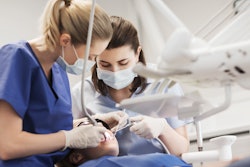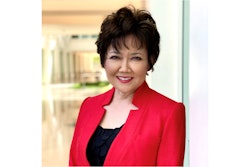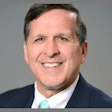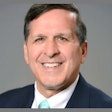Although many dental professionals view mental health (MH) screening in dental settings positively, only a small number may be willing to put it into practice, according to a study recently published in BMC Oral Health.
Patient comfort and limited training may be causing dentists’ hesitancy, the authors wrote.
“This study found that while most dental professionals perceived MH screening in dental settings as feasible and felt comfortable with it, relatively few were willing to implement it,” wrote the authors, led by Oksana Mishler, RDH, MS, of the University of Maryland School of Dentistry (BMC Oral Heath, July 19, 2025, Vol. 25, 1208).
The mixed-methods study began with focused interviews of 15 dental professionals from July to October 2021 to help develop a survey tool. Qualitative analysis of the interviews revealed four key themes: a holistic perspective, stress manifestations, comfort and concerns, and available resources and supports, they wrote.
A subsequent survey was distributed in November 2022 to members of the university’s Maryland Practice-Based Research Network in Dentistry (MPresD). A total of 48 dentists and 20 dental hygienists completed the survey. The questionnaire covered topics such as psychosocial stress, current practices for mental health screening, provider comfort levels, and perceived barriers.
Of the respondents, 84% reported observing patients experiencing psychosocial stress either occasionally or often. During the COVID-19 pandemic, 78% noticed an increase in patient stress, and dentists were significantly more likely to report a substantial increase, they wrote.
While 62% of respondents believed that screening for psychosocial stress in dental settings could be feasible and 59% felt comfortable with the idea, only 38% were interested in helping develop a screening questionnaire, and 35% were willing to participate in pilot testing.
Respondents reported dental practice's scope and workflow (41%), patient comfort concerns (20.4%), and lack of training or knowledge (19.2%) as major barriers to screening at practices, the authors wrote.
However, the study had limitations. All participants were from the MPresD network, possibly reflecting a research-oriented bias not representative of the wider dental community, the authors added.
“Future efforts to integrate MH screening into dental practices should address the identified barriers and leverage the dental providers’ positive perceptions of feasibility and comfort in MH screening,” they concluded.




















